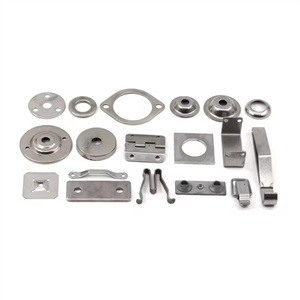The choice of material for Custom Metal Parts often depends on a number of factors, including the purpose of the part, the operating environment, the performance requirements, and the cost budget. Here are some common custom metal parts materials and their properties:
Carbon steel: Carbon steel has high strength and hardness, which is suitable for parts that bear large loads. By adjusting the carbon content and the heat treatment process, different levels of mechanical properties can be obtained.
Copper and copper alloys: Copper and copper alloys have good electrical and thermal conductivity, making them suitable for custom metal parts in the electrical and electronic fields. They also have good processability and corrosion resistance.
Stainless steel, such as 304 and 316 stainless steel, has good corrosion resistance, strength, and processing performance, and is widely used in various industrial fields.
Commonly used for manufacturing components of food processing equipment, medical devices, and chemical equipment.
Aluminum alloys, such as 6061 and 7075 aluminum alloys, are lightweight, have high strength, and have good conductivity and thermal conductivity.
Customized components commonly found in aerospace, automotive, and electronic devices.
Brass: It has good cutting performance and conductivity, and is commonly used in electrical and hardware parts.
For example, customized components for plumbing fittings and electrical plugs.
Titanium alloy: high strength, good corrosion resistance, light weight, but high cost.
It has applications in aerospace and high-end medical fields, such as manufacturing artificial joints and aircraft engine components.
Carbon steel: including low-carbon steel, medium carbon steel, and high carbon steel, with different properties according to different carbon contents, which can meet various customization needs.
Commonly used in mechanical manufacturing for structural components and tools.
The frame customized for high-end bicycles may use aluminum alloy to reduce weight; Customized corrosion-resistant valves in the chemical industry may use stainless steel materials.
Special alloys: For some special application scenarios, special alloys may be required to manufacture custom metal parts. These alloys usually have excellent resistance to high temperatures, wear, corrosion, etc.
